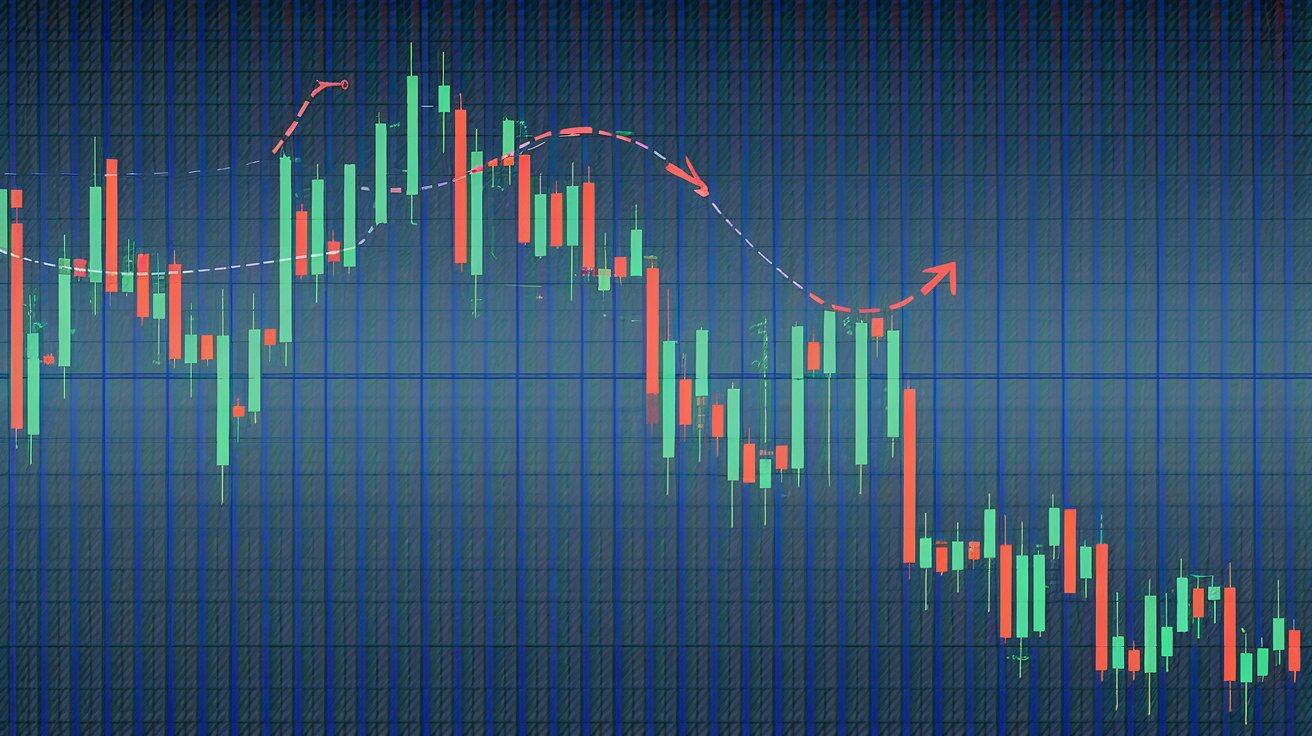
Why has GameStop (GME) become such a hot topic in the stock market? GameStop, a video game retailer founded in 1994, has transformed from a small chain into a global brand with over 5,000 locations. The stock, listed on the NYSE under the ticker GME, gained massive attention in January 2021 due to a short squeeze that skyrocketed its price from $17 to over $380. This surge was fueled by social media activism, particularly from Reddit's r/wallstreetbets community. Despite declining revenues, GameStop has improved its earnings and reduced debt, making it a focal point for both retail and institutional investors. Let's dive into 50 key facts about GME stock to understand its journey, market dynamics, and future prospects.
The Rise of GameStop
GameStop, a name that has become synonymous with stock market drama, has a fascinating story. From humble beginnings to a global phenomenon, let's dive into the key facts that define GME stock.
-
Company Overview
GameStop is an American retailer specializing in video games, consumer electronics, and gaming merchandise. Founded in 1994, it has grown from a small chain to a global brand with over 5,000 locations in the U.S., Canada, Australia, and Europe. -
Stock Ticker
GameStop trades under the ticker symbol GME on the New York Stock Exchange (NYSE). -
Short Squeeze Phenomenon
In January 2021, GameStop experienced a dramatic short squeeze. The stock price surged from around $17 to over $380, driven by massive short interest and social media activism. -
Short Interest
As of February 2024, GameStop's short interest is approximately 22.3% of its float, indicating a high level of betting against the stock's price rise. -
Days to Cover Ratio
The days to cover ratio for GameStop is 9.88, meaning it would take nearly 10 days for all short sellers to cover their positions at the current average daily trading volume.
Market Dynamics and Speculation
Understanding the forces behind GameStop's stock movements is crucial. Market speculation and trading dynamics play significant roles.
-
Options Trading Dynamics
A significant volume of put options has been observed for GameStop, particularly at out-of-the-money strike prices. This has contributed to selling pressure on the underlying shares. -
Market Speculation
Lack of recent news about GameStop's business fundamentals has led to market speculation, driving the stock's price trajectory. Despite this, the company's fundamentals have shown positive changes in its cost structure. -
Valuation Considerations
GameStop's valuation remains a concern, with a current P/E ratio of 122.3x, forecast to decrease to 96x in 2025 and 56x in 2026. This high valuation could be a barrier to entry for institutional investors.
Financial Performance
GameStop's financials reveal a complex picture of decline and improvement.
-
Revenue Decline
GameStop's revenue has been declining, from $6 billion in fiscal 2022 to $5.3 billion in fiscal 2024, primarily due to lower sales of software, collectibles, and video game accessories. -
Earnings Improvement
Despite the revenue decline, the company's reported earnings have improved from a loss of $1.31 per share to a profit of $0.02 per share over the same period. -
Debt Reduction
GameStop has reduced its total debt from $1 billion in fiscal 2021 to $603 million in fiscal 2024, while increasing its cash reserves from $509 million to $1.2 billion. -
Financial Position
The company's debt is around 6% of its equity, and its cash is approximately 44% of its assets, indicating a relatively good financial position.
Stock Price Volatility
GameStop's stock price has been anything but stable. Let's explore its wild ride.
-
52-Week Price Range
GameStop's stock price has ranged between $10 and $65 over the past year, reflecting its high volatility. -
Current Stock Price
As of June 2024, GameStop's stock price is around $30 per share, about 65% below its peak level of over $80 seen in January 2021. -
Historical Performance
GameStop's stock saw a gigantic move from $5 to over $80 in January 2021, driven by a large short squeeze. The stock has since seen significant fluctuations, including a 688% return in 2021, a 50% decline in 2022, and a 5% decline in 2023. -
Comparison with S&P 500
In comparison, the S&P 500 saw returns of 27% in 2021, -19% in 2022, and 24% in 2023, indicating that GameStop underperformed the broader market in recent years.
Social Media and Influences
Social media and key influencers have played pivotal roles in GameStop's stock saga.
-
Social Media Impact
The social media platform Reddit, particularly the r/wallstreetbets community, played a significant role in the GameStop short squeeze. The community's activism helped drive up the stock price by promoting buying and criticizing short sellers. -
Keith Gill's Role
Keith Gill, also known as Roaring Kitty, was a key figure in the GameStop short squeeze. He disclosed a position of around $500 million in GME on Reddit, which helped fuel the rally. -
Elon Musk's Influence
Elon Musk's tweet "Gamestonk!!" on January 26, 2021, further boosted the stock's price by drawing attention to the Reddit community's activities. -
Robinhood's Role
Robinhood, a popular trading app, halted buying of GameStop stock on January 28, 2021, but allowed sell orders. This move was criticized by investors and raised suspicions of market manipulation.
Regulatory and Market Responses
The GameStop saga caught the attention of regulators and market analysts alike.
-
Regulatory Response
Janet Yellen, U.S. Treasury Secretary, requested a meeting of regulators to discuss the volatility created by the recent wave of retail trading. This move highlighted the need for regulatory oversight in the face of rapid market changes. -
Hearing on GameStop
A hearing titled “Game Stopped? Who Wins and Loses When Short Sellers, Social Media, and Retail Investors Collide” was held by the U.S. House on February 18, 2021. The hearing aimed to understand the dynamics behind the short squeeze and its impact on the market. -
Market Volatility
GameStop's stock has been highly volatile, with significant price swings driven by both positive and negative news. The stock's 52-week price range reflects this volatility, from $10 to $65. -
Valuation Metrics
GameStop's valuation metrics, such as its P/E ratio, are significantly higher than the industry average. This high valuation could be a deterrent for institutional investors, who often prefer more reasonably valued stocks.
Future Prospects and Strategic Shifts
Despite the challenges, GameStop is making strategic moves to secure its future.
-
Potential Upside
Despite the challenges, there is potential for GameStop's stock to recover. If the stock were to return to its pre-shock levels of around $87, it could see a significant upside of 185%. -
Meme Stock Phenomenon
GameStop is often classified as a "meme stock," meaning its price is influenced more by social media attention and speculation rather than traditional fundamental analysis. This classification reflects the stock's high volatility and sensitivity to online discussions. -
Historical Context
The GameStop short squeeze was not an isolated event. Similar phenomena have occurred in the past, such as the 2012 short squeeze by Philip Falcone, which highlights the ongoing challenges of short selling in the market. -
Industry Trends
The video game industry is undergoing significant changes, with a shift towards digital sales and online gaming. GameStop's ability to adapt to these trends will be crucial for its long-term success. -
Retail Investor Impact
Retail investors, particularly those on Reddit's r/wallstreetbets, have played a significant role in shaping GameStop's stock price. Their collective buying power and online activism have been instrumental in driving price movements. -
Regulatory Challenges
The rapid rise of retail trading and social media-driven stock movements has raised regulatory challenges. Authorities must balance the need for market oversight with the rights of individual investors to participate in the market. -
Financial Positioning
GameStop's financial position, including its debt and cash reserves, is relatively stable. However, the company's thin margins and declining revenues pose ongoing challenges to its profitability. -
Strategic Shifts
GameStop is undergoing strategic shifts, including a focus on digital sales and cost reduction efforts. These initiatives aim to improve the company's financial performance and adapt to changing market conditions. -
Market Sentiment
Market sentiment towards GameStop remains mixed. While some investors see potential for recovery, others view the stock as overvalued and risky due to its high volatility and thin margins. -
Earnings Releases
Earnings releases have been significant events for GameStop, often driving price movements. The company's ability to meet or exceed earnings expectations will be crucial for maintaining investor confidence. -
CEO Ryan Cohen
CEO Ryan Cohen has been instrumental in GameStop's strategic shifts. His leadership aims to transform the company into a more digital-focused retailer, improving its financial performance and competitiveness. -
Industry Competition
GameStop faces intense competition from both traditional retailers and online platforms. The company must innovate and adapt to stay competitive in the rapidly evolving video game industry. -
Customer Base
GameStop's customer base is diverse, including both casual gamers and hardcore enthusiasts. The company's ability to cater to this diverse customer base will be crucial for maintaining market share. -
Product Diversification
GameStop has diversified its product offerings beyond video games to include collectibles, software, and gaming accessories. This diversification aims to reduce dependence on any single product category. -
Store Closures
GameStop has closed several stores in recent years as part of its restructuring efforts. This move aims to reduce operational costs and focus on more profitable locations. -
Employee Impact
Store closures have impacted GameStop employees, leading to job losses and changes in the retail landscape. The company must balance cost reduction with employee welfare to maintain a positive brand image. -
Community Engagement
GameStop engages with its community through various initiatives, including esports events and gaming tournaments. This engagement helps build brand loyalty and attract new customers. -
Digital Transformation
The company's digital transformation involves investing in e-commerce platforms, online marketplaces, and digital distribution channels. This shift aims to increase online sales and reduce reliance on physical stores. -
Partnerships and Collaborations
GameStop has partnered with various gaming companies to offer exclusive content and promotions. These partnerships help attract new customers and enhance the shopping experience. -
Customer Loyalty Programs
GameStop offers customer loyalty programs to retain existing customers and encourage repeat business. These programs provide rewards and discounts, fostering customer loyalty. -
Market Analysis
Market analysis indicates that GameStop's stock price is influenced by a combination of factors, including options trading dynamics, short interest, market speculation, and evolving valuation considerations. -
Investment Strategies
Investors have employed various strategies to profit from GameStop's volatility, including buying puts and engaging in short squeezes. However, these strategies come with significant risks and should be approached with caution. -
Regulatory Environment
The regulatory environment surrounding GameStop has been complex, with various regulatory bodies scrutinizing the company's activities. This scrutiny aims to ensure fair market practices and protect investors. -
Future Prospects
Despite the challenges, GameStop has potential for future growth. The company's strategic shifts towards digital sales, cost reduction efforts, and community engagement initiatives could help improve its financial performance and market position. -
Fundamental Analysis
GameStop's financials show thin margins, which could be a challenge for the company to sustain profitability. However, the company's strategic shift towards digital sales and cost reduction efforts may help improve its financials. -
2008 Recession Comparison
During the 2008 recession, GameStop's stock price declined from $14 to $7, a 52% loss. The S&P 500 Index declined by 51% over the same period.
The Future of GME Stock
GameStop's journey has been nothing short of a rollercoaster. From its humble beginnings to the wild ride of the 2021 short squeeze, GME has captured the imagination of investors everywhere. The company's shift towards digital sales, cost-cutting measures, and strategic leadership under CEO Ryan Cohen show promise. However, challenges like declining revenues and intense competition remain.
The stock's high volatility and meme status make it a risky yet potentially rewarding investment. Retail investors, social media influence, and regulatory scrutiny will continue to shape its future. Whether GME can adapt and thrive in the evolving gaming industry is the big question. For now, it remains a fascinating case study in market dynamics and investor behavior. Keep an eye on this one; the story of GameStop is far from over.
Was this page helpful?
Our commitment to delivering trustworthy and engaging content is at the heart of what we do. Each fact on our site is contributed by real users like you, bringing a wealth of diverse insights and information. To ensure the highest standards of accuracy and reliability, our dedicated editors meticulously review each submission. This process guarantees that the facts we share are not only fascinating but also credible. Trust in our commitment to quality and authenticity as you explore and learn with us.


